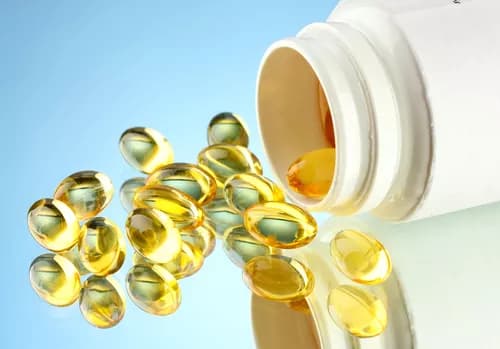
Fish Oil During Pregnancy Offers No Protection For Children Against Obesity
In Europe, almost one in three schoolchildren under the age of ten is overweight, if not obese. In the search for the cause of this phenomenon, fetal programming inside a mother's womb was put under scrutiny as a potential culprit for this "heavy issue." The hypothesis that the mother's diet might have some sort of influence could not be confirmed in a long-term study: administering a special diet rich in omega-3 fatty acids and low in arachidonic acid, an omega-6 fatty acid, to pregnant women neither resulted in children being slimmer nor fatter than their counterparts from the control group whose mothers had enjoyed a normal diet.
Up to now, the general consensus had been that "bad" fats, especially omega-6 fatty acids, consumed during pregnancy increased the formation of infantile fat cells, while "good" omega-3 fatty acids protected the child against becoming overweight. Since, in the animal model, an increased intake of omega-3 fatty acids during pregnancy and lactation coupled with a simultaneous reduction in arachidonic acids resulted in offspring with a significantly lower tendency to become overweight, the INFAT human study was the first to investigate whether this result was translatable onto humans.
"Translating the findings from animal trials onto the human organism is always a challenge," says Professor Hans Hauner, Head of the Else-Kröner-Fresenius Center for Nutritional Medicine at the Technical University of Munich (TUM). "However, the prospects of this being applicable were extremely attractive: had it been confirmed, mothers would have been able to protect to ensure lifelong protection for their offspring against becoming overweight, or even obese, right from the very start."
Over 200 women took part in the long-term study
208 women with an average age of 32 years and a BMI of 22 took part in this study conducted by Prof. Hauner from the Chair of Nutritional Medicine at TUM, which was aimed at verifying this hypothesis. While half of the study group continued with a normal diet, the other 104-women-strong group ate an omega-3 rich diet coupled with a significant reduction in meat consumption (contains omega-6 fatty acids) from the twelfth week of pregnancy to the fourth month of lactation. The children of the cohort mothers were examined once a year until the age of five, making the INFAT study the first study to deliver valid data over such an extended period.
"We then examined the children using three different methods: firstly we measured their skin fold thickness, then ultrasound investigations were added as these are more accurate," explains Prof. Hauner from the Chair of Nutritional Medicine at TUM -- "and in one part of the cohort we also used MRS imaging to measure the fat inside the abdominal cavity.
The end result was negative: "this special diet had no effect on the weight of the babies and toddlers," says Hauner. This proves that the earlier findings are not translatable onto humans and that the hoped-for benefit of such a diet is questionable as it does not appear to prevent childhood obesity. According to the study's authors, it might, however, be possible that a mother's diet during early pregnancy has other beneficial effects, which would have to be determined in further clinical studies.
The above post is reprinted from materials provided by Technical University of Munich (TUM). Note: Materials may be edited for content and length.
Disclaimer: DoveMed is not responsible for the adapted accuracy of news releases posted to DoveMed by contributing universities and institutions.
Primary Resource:
Brei, C., Stecher, L., Much, D., Karla, M. T., Amann-Gassner, U., Shen, J., ... & Hauner, H. (2016). Reduction of the n–6: n–3 long-chain PUFA ratio during pregnancy and lactation on offspring body composition: follow-up results from a randomized controlled trial up to 5 y of age. The American journal of clinical nutrition, 103(6), 1472-1481.
Related Articles
Test Your Knowledge
Asked by users
Related Centers
Related Specialties
Related Physicians
Related Procedures
Related Resources
Join DoveHubs
and connect with fellow professionals

0 Comments
Please log in to post a comment.